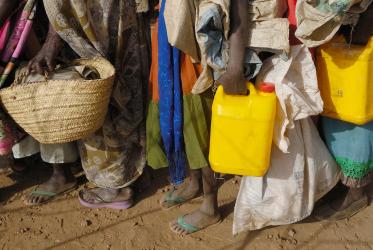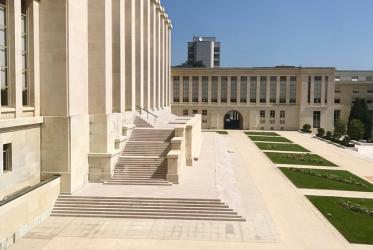Displaying 1 - 18 of 18
03 - 04 November 2022
Palais des Nations in Geneva, Switzerland
A visionary missionary heads home
25 March 2020
WCC offers statement on racism before UN Human Rights Council
24 September 2019
Ecumenical young trailblazers
15 August 2019
Casely Essamuah, ‘working for the greater glory of God’
26 October 2018
Land rights focus of panel discussion
17 November 2015
WCC urges responsibility for and support to the refugees in Europe
04 September 2015
Understanding justice and peace as Christian pilgrims
15 January 2015











